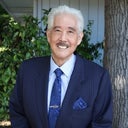Have you had any successes treating capsular contracture with Vitamin E and accolate?
I recently developed capsular contracture, which was my biggest fear about augmentation. A little over 1 year post op. 475 silicone under the muscle. I saw my Dr several times throughout the healing process, most recently 3 mths ago, at 1 year post op, at which time all was fine. Shortly after that I noticed my left breast riding a little higher, but it was always the one that was a little different. Went to Dr, said yes cc is happening. It’s early and I’m on vitamin E and accolate. Anyone have any successes with this treatment?










